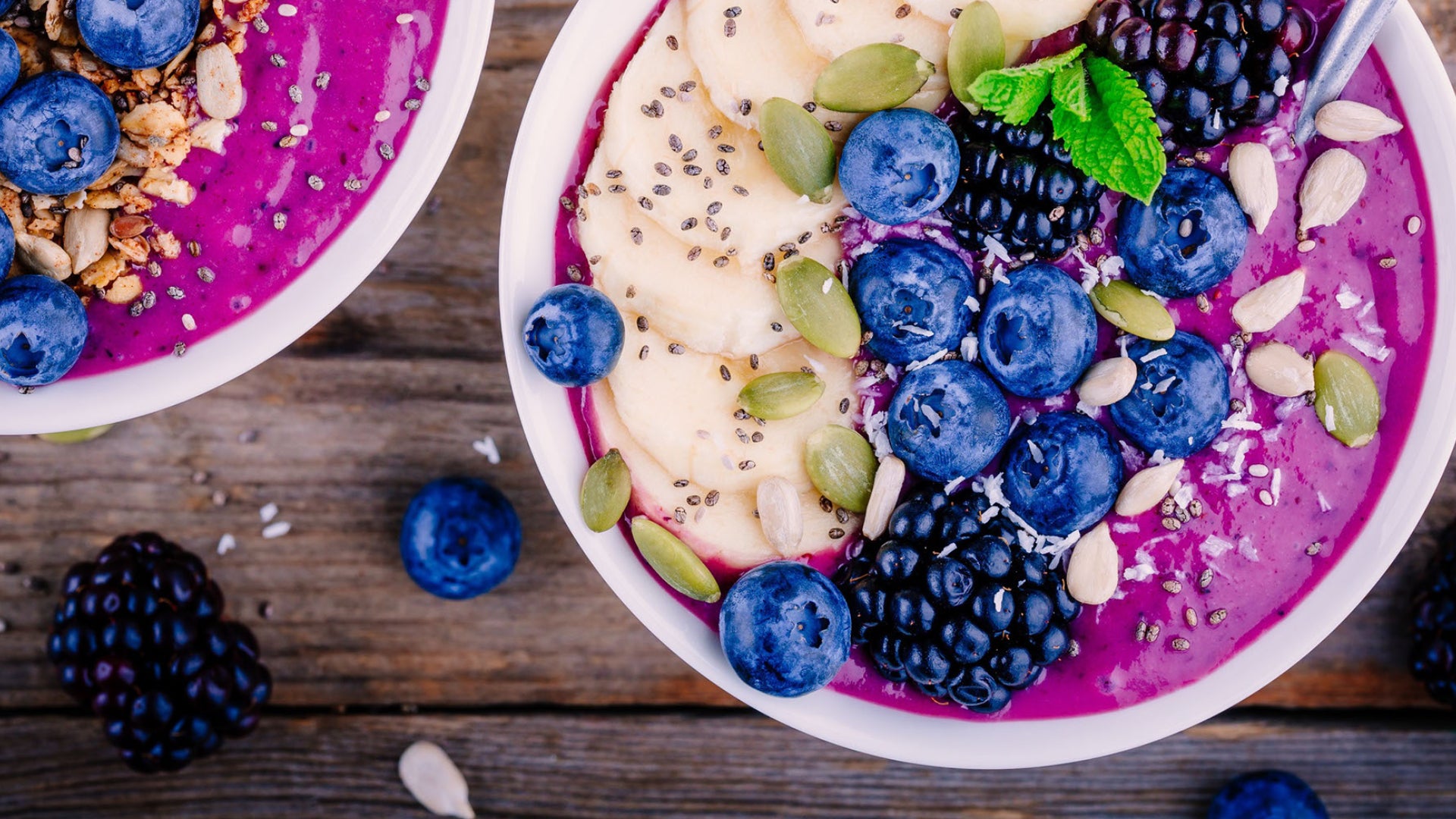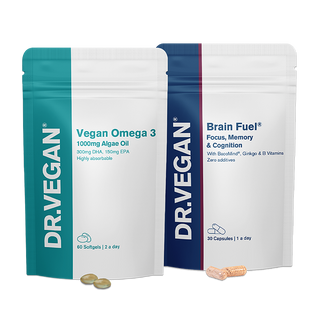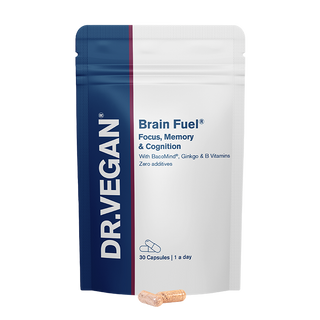Foods and vitamins to improve your brain

The brain accounts for about 2% of your total body weight but it uses 20% of your energy intake, so it’s essential to feed it the right foods every day. Expert nutritionists explain the best foods and vitamins for your brain.
Food for your brain
Glucose is your brain’s preferred source of energy. Your brain uses up more energy during challenging mental tasks, so keeping blood glucose levels at an optimum level will help your cognitive function. Eating regular meals also helps.
A balanced diet with carbohydrate foods including whole grains, vegetables, fruits and legumes will provide your brain with a steady supply of glucose and benefit your concentration.
Healthy fats and your brain
Dietary fat is important for brain function. and in particular the omega 3 fatty acids. Around 60% of the brain is made up of fat, and around half of that is omega 3 fatty acids. The long-chain omega 3 fatty acids found in oily fish, such as salmon, trout, mackerel and sardines, are viewed as particularly beneficial for maintaining normal brain function.
If your diet doesn’t include fish, your body can convert the short-chain omega 3 fatty acids from some plant foods (although not very efficiently) into the long-chain omega 3 fatty acids. These plant foods include walnuts, flax, hemp, chia, pumpkin seeds and rapeseed oil.
Best foods for your brain
The brain requires a wide range of nutrients to function well. The best way to ensure you get all the essential nutrients is by eating a healthy and varied diet.
A Mediterranean-style diet is thought to be particularly beneficial for brain health and good foods to include are:
- All vegetables, especially green leafy vegetables such as kale, spinach, salads and cooked greens
- Berries including blueberries, blackberries, strawberries and raspberries (discover our fabulous berry fitness bar recipe)
- A variety of different nuts and seeds
- Whole grains such as oats, brown rice, quinoa, whole-wheat bread and pasta
- A variety of different legumes – beans, peas, and lentils
- If you’re not vegan or plant-based, some lean meats, fish and low fat dairy products and eggs.
Explore the worst foods for memory and brain fog.
Vitamins for the brain
Vitamin C
Vitamin C helps reduce tiredness and fatigue, so snacking on a piece of fruit, a berry smoothie or having a red pepper and tomato soup should help you feel more awake.
B Vitamins
B Vitamins help convert the food you eat into energy so they’re vital for getting energy to your brain. Vitamins B1, B2, B6, Folate and Vitamin B12 for example, all play a key role in brain function.
Pantothenic acid (or Vitamin B5) helps mental performance. Meat, eggs, wholegrain foods and almost all vegetables, in particular mushrooms and avocados, contain Vitamin B5.
Brain Health Bundle

Calcium
Calcium contributes to the normal neurotransmission function of your brain that helps pass messages between cells, and is also thought to be involved in your learning and memory function.
Dairy products are the best source of Calcium but if you don’t consume dairy, include a non-dairy milk or yoghurt alternative with added calcium, tofu made with calcium sulphate, or beans, chickpeas, sesame seeds, kale, spinach and broccoli which are also good sources.
Magnesium, Zinc & Copper
Nuts and seeds provide a range of minerals that are likely to benefit brain function including Magnesium and Zinc, both of which are key nutrients for the normal functioning of the brain.
Magnesium also helps reduce tiredness and fatigue and it is thought that Magnesium has a role in regulating receptors found on nerve cells that help memory and learning. Copper, also found in many nuts and seeds, is important for brain development and helps the nervous system function properly.
Iron
Iron plays a role in normal brain function – low Iron can result in feeling fatigued and may have a negative impact on brain functions such as attention, memory and learning. Red meat provides readily available Iron but if you don’t eat meat, there are a variety of plant foods that provide iron. You may be interested in reading how to clear brain fog.
Hydration and the brain
Finally, always keep well hydrated. Even mild dehydration can have a negative impact on your memory and brain performance. See our article ‘8 things to keep you happy and healthy at work this winter’ for more details.
Discover our range of vegan vitamins and supplements.
You may also be interested in reading 'Nootropics: Everything you need to know' and 'Mushrooms and brain health'.
Want to hear more from our nutritionists? Sign up to our email newsletter for insights and exclusive offers:
References
Baker et al (2013) The role of intracellular calcium stores in synaptic plasticity and memory consolidation. Neuroscience and Biobehavioural Reviews. 37: 1211-39. https://doi.org/10.1016/j.neubiorev.2013.04.011
Gareri et al (1995) Role of Calcium in brain aging. General Pharmacology. 26(8):1651-7. Available: https://doi.org/10.1016/0306-3623(95)00043-7
Herculano-Houzel (2011) Scaling of brain metabolism with a fixed energy budget per neuron: implications for neuronal activity, plasticity and evolution. PLoS ONE Available: https://journals.plos.org/plosone/articleid=10.1371/journal.pone.0017514
Lo et al (2019) Relation of magnesium intake to cognitive impairment and dementia among participants in the WHI memory study: a prospective cohort study. BMJ Open. Available: https://bmjopen.bmj.com/content/9/11/e030052
Morris et al. (2015) MIND diet associated with reduced incidence of Alzheimer's disease. Alzheimer’s and Dementia. 11(9): 1007-14. Available: https://doi.org/10.1016/j.jalz.2014.11.009
Murray-Kolb and Beard (2007) Iron treatment normalizes cognitive functioning in young women. Am J Clin Nutr. 85:778-87. Available: https://doi.org/10.1093/ajcn/85.3.778
NHS Choices (2020) Vitamins and minerals. Available: Vitamins and minerals - NHS (www.nhs.uk)


















